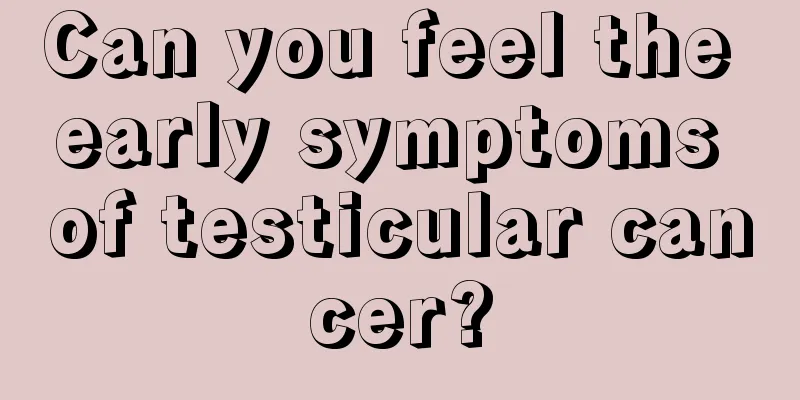Symptoms of rectal cancer stage 1, 2, 3 and 4

|
The symptoms of rectal cancer vary significantly in different stages, with milder symptoms in the early stages and more severe symptoms in the late stages. 1. Stage 1 symptoms: In the first stage of rectal cancer, the symptoms are usually not obvious. There may be slight blood in the stool, but it is often mistaken for hemorrhoids. Some people may also feel a change in bowel habits, such as increased frequency of constipation or diarrhea. The tumor at this stage has not spread yet and is confined to the rectal wall. 2. Second stage symptoms: In the second stage, the tumor begins to invade deeper into the rectal wall. At this time, the symptoms of blood in the stool will become more obvious, and the color may turn dark red or black. You may feel pain or discomfort when defecating, and you may also have dull pain or bloating in the abdomen. Some patients may experience alternating abdominal distension, diarrhea, or constipation. 3. Stage III symptoms: The symptoms of stage III rectal cancer are more severe. The tumor may have spread to the surrounding lymph nodes. The patient may experience persistent abdominal pain, and the pain during bowel movements may increase. Blood in the stool may become more frequent and the amount of blood may increase. Weight loss, loss of appetite, and fatigue may also occur. Tumors at this stage can cause intestinal blockage, resulting in severe constipation or intestinal obstruction. 4. Stage IV symptoms: Stage IV is the advanced stage of rectal cancer, when the tumor has spread to distant organs such as the liver, lungs, or bones. Symptoms include severe abdominal pain, persistent blood in the stool, significant weight loss, and extreme fatigue. Patients may experience jaundice, difficulty breathing, or bone pain. Treatment at this stage is very difficult and is mainly focused on relieving symptoms and prolonging life. In order to increase the early detection rate of rectal cancer, it is very important to have regular physical examinations and pay attention to the signals sent by the body. If you experience unexplained blood in your stool, persistent abdominal pain, or changes in bowel habits, it is recommended to see a doctor as soon as possible. In addition, maintaining a healthy diet and lifestyle, such as consuming more fiber-rich foods, avoiding high-fat diets, and exercising moderately, can also help reduce the risk of rectal cancer. In general, the symptoms of rectal cancer gradually worsen as the disease progresses, and early detection and treatment are the key to improving the cure rate. |
<<: What are the early symptoms of gastric cancer
>>: Can I smoke if I have rectal cancer? Does it have any effect?
Recommend
What should I eat when exercising
Recently, many people have started various ways t...
Should I bleach honey brown hair?
Honey tea color hair is quite popular this year. ...
Can liver cancer be completely cured?
The cure rate of early liver cancer is still rela...
How long can one usually live with advanced gastric cancer
The survival time of patients with advanced gastr...
Brain tissue softening
There are very important brain tissues distribute...
How to treat finger fracture
Whether in life or work, we cannot do without the...
What to do if the inner side of the nostril grows after rhinoplasty
Nowadays, plastic surgery is a very common phenom...
Dark skin on elbow joint
The elbow joint is a very important joint. The fl...
Is it okay to eat after jogging?
Many people have this habit. After getting up ear...
What are the factors that lead to colon cancer
Intestinal cancer is a disease that mainly occurs...
Steps to remove scale from thermos bottle
The main function of a thermos is to keep water w...
Does renal cortical hamartoma require surgery?
The professional medical term for renal cortical ...
What is the cause of lymph node acne
We may not know much about lymph, but in fact the...
Can osmanthus be used to make wine?
Osmanthus is an ingredient that can be used to ma...
Ear bleeding causes tinnitus, how to stop the bleeding as soon as possible
In daily life, many people pick their ears, but a...









